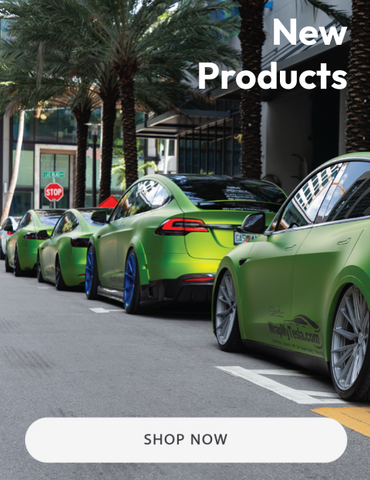Here's why GM will lose to Tesla
In a thought-provoking piece that appeared in Forbes*, Tesla [NASDAQ: TSLA] investor Arne Alsin writes that: "The car industry is in the throes of a once-in-a-lifetime disruption towards electric vehicles, but traditional car companies — like General Motors — are, in my opinion, out of position. It’s a classic innovator’s dilemma. Instead of using capital to invest in the future (i.e. Gigafactories), it’s my belief that GM is squandering shareholder cash by buying back company stock."
Above: Chevy Bolt and Tesla Model S (Image: Motor Trend)
How is this problematic? "The numbers tell the story: In the five years from 2012 to 2016, GM spent $16.8 billion on stock buybacks. Just to give you some perspective, that cash represents 30 percent of the value of the company, assuming GM’s current market cap of $56 billion. Meanwhile, Tesla is investing $5 billion to build the Gigafactory, which will dramatically lower the price of electric vehicle batteries, and help Tesla produce their Model 3 at scale... [and] by 2020, Elon Musk says, Tesla will have the ability to produce up to one million electric vehicles per year."
Above: Tesla Gigafactory under construction (Image: CNET)
So what can investors translate from GM's antiquated strategy here? "Investors, take note. This is how the story plays out in a disrupted vertical. A young upstart emerges on the scene, on an epic mission and willing to risk it all in an effort to produce an incredible value proposition. Meanwhile, the old guard — in this case GM — plays protect and defend. And how do they do that? Buybacks." Alain notes: "With $16.8 billion, GM could have built three Gigafactories and given Tesla a run for their money, not to mention providing tens of thousands of jobs, securing a vital source of their supply chain for decades, and, most importantly, helping to usher in the next generation of electric vehicles. But they didn’t."
Above: Cumulative electric vehicle sales forecast for GM vs. Tesla relative to tax incentive trigger (Source: CleanTechnica)
And while we applaud GM's efforts with it's all-electric Bolt, the company still outsources its EV batteries from LG Chem. Furthermore, "By March 2017, GM sold a little over 2,000 Bolts, which retail around $37,000. By way of comparison, Tesla has delivered over 183,000 Model S and X vehicles over the last four years... And then there’s the Model 3. Tesla has received over 400,000 customer deposits for its Model 3, which is priced at $35,000." And according to strategy professor Howard Yu: "By producing batteries at a scale far exceeding the current capacity of today’s global supply chain, the [Tesla] Gigafactory is set to drive down the production cost to a level the world has yet to see."
Above: Tesla Model 3 (Image: Motor1)
In any event, what can investors learn from all this? "This is big deal for the investors who can recognize the opportunity. We’ve already seen this story play out in disruptions in other verticals, such as retail and cloud. Here we go again, only this time it’s a revolution that will not only rock the car industry’s world — it appears destined to turn the energy industry upside down too... [so] as an investor, you don’t get these sorts of opportunities very often, where a wealth pie that measures in the trillions (if you include the energy complex) gets divided up anew. It’s healthy for consumers, and it’s healthy for the economy, when you rip out the old and bring in the new."
===
*Source: Forbes




